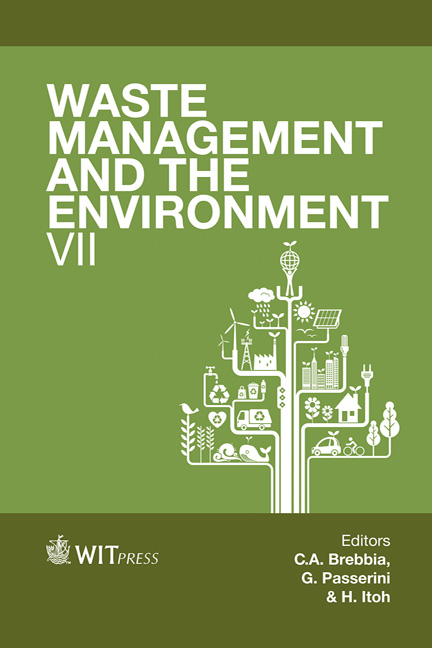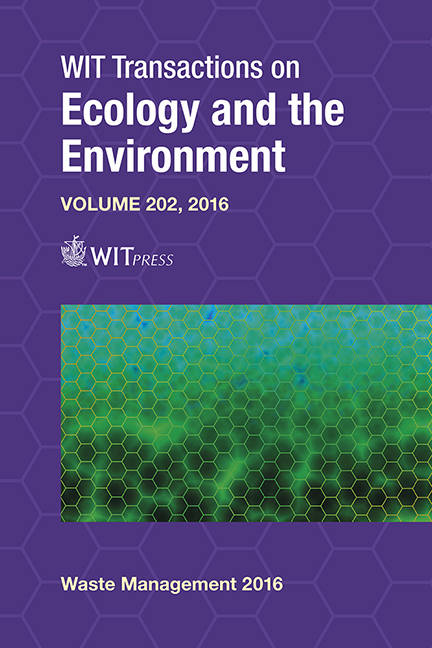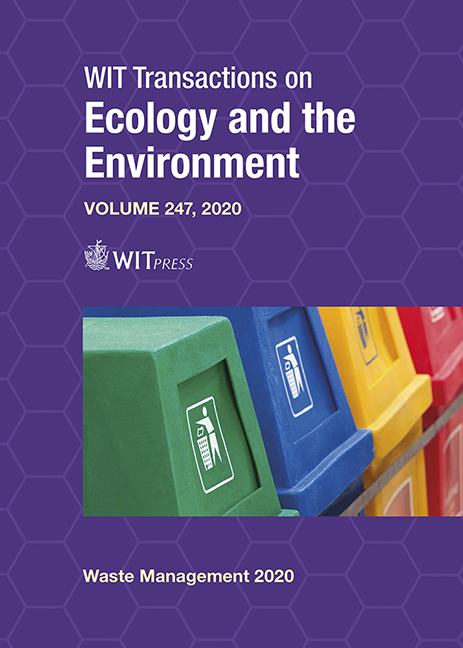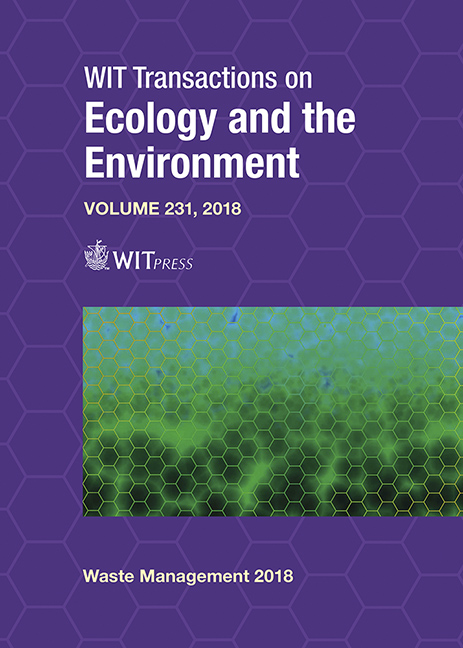Waste Management and the Environment VII
Edited By: C.A. Brebbia, Wessex Institute of Technology, UK; G. Passerini, Universit? Politecnica delle Marche, Italy; H. Itoh, University of Nagoya, Japan
Price
$452.00 (free shipping)
ISBN
978-1-84564-760-5
eISBN
978-1-84564-761-2
Pages
524
Transaction Series
WIT Transactions on Ecology and the Environment
Transaction Volume
180
Published
2014
Format
Hardback
The proceedings of the 7th International Conference on Waste Management and the Environment follows on from the success of previous meetings held in Cadiz (2002), Rhodes (2004), Malta (2006), Granada (2008), Tallin (2010) and the New Forest (2012).
There is growing awareness of the detrimental effects of current waste disposal and a movement towards greater accountability for effective waste management. Better practices and safer solutions are required. This creates a need for more research on current disposal methods such as landfills, incineration, chemical and effluent treatment as well as recycling, waste incineration, clean technologies, waste monitoring, public and corporate awareness, and general education. Waste Management is one of the key problems of modern society due to the ever expanding volume and complexity of discarded domestic and industrial waste.
Unfortunately many of the policies adopted in the past were aimed at short term solutions without due regard to the long term implications on health and the environment, leading in many cases to the need to take difficult and expensive remedial action.
The desired direction of waste management is towards sustainable strategies. The approach which has emerged as the most sustainable strategy has been called 3Rs, where reduction, reuse and recycling, in this order, are seen as the best actions. Recently recovery is added as the fourth action (4Rs) applied in order to; for example, recover energy from waste that cannot be classified under the 3Rs. This largely decreases the volume of the waste that needs final disposal.
Further steps are required towards improvement of current technologies, increased collaboration between the public, government and private sectors and increased involvement of all stakeholders.
Topics covered include: Industrial Waste Management; Waste Management; Direct and Indirect Pre-treatment of MSW; Waste Water; Remote Sensing; Reduce, Reuse, Recycle and Recovery (4Rs); Environmental Impact; Environmental Remediation; Disposal of High-level Radioactive Waste in a New Perspective; Agricultural Waste; Energy from Waste.







